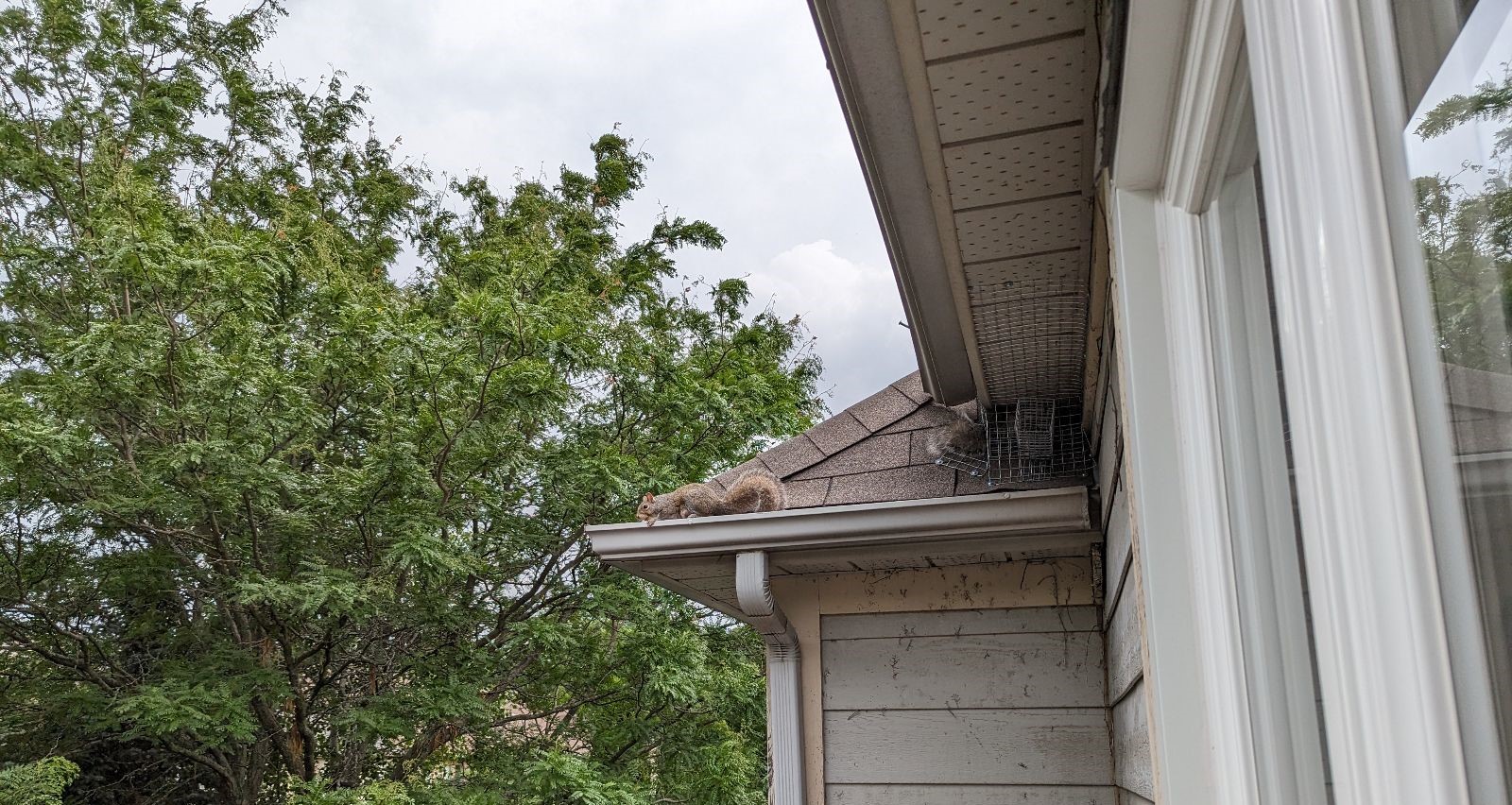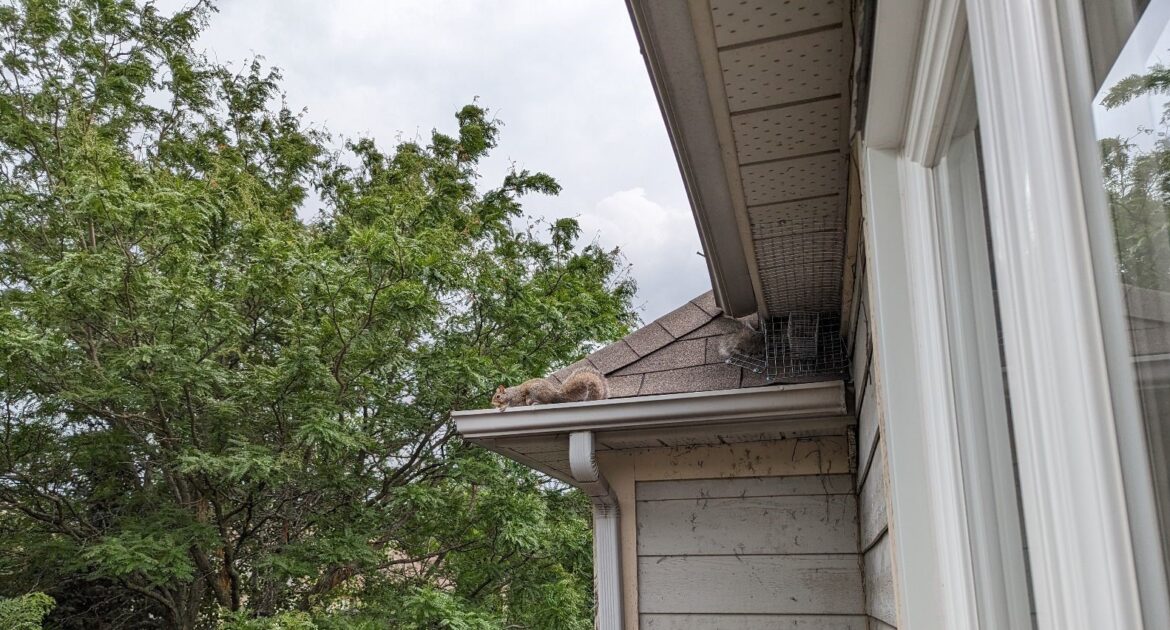Picture this: You’re about to finalize a lucrative real estate deal when suddenly, a small but potentially disastrous discovery threatens to unravel the entire transaction. The unlikely culprit? Squirrels. While these bushy-tailed creatures may charm us with their playful antics in the park, their presence in or around a home can lead to significant issues during the real estate process. Many homebuyers are unaware that a squirrel infestation can lead to hidden damages, which might surface during inspections, causing potential deals to fall apart.
Squirrels are naturally attracted to attics and other hidden nooks where they feel safe and cozy. Once they find their way into a structure, they can cause extensive damage by gnawing on electrical wiring, insulation, and even wooden beams, driving repair costs sky-high. This hidden damage can derail a home sale faster than you can say “pest problem.” As such, understanding what attracts squirrels and how to keep them away is crucial for both sellers and buyers.
Here at Skedaddle Humane Wildlife Control in Ottawa, we specialize in ensuring these furry intruders don’t become a problem for your property transactions. In this piece, we’ll explore why thorough wildlife control is essential, how squirrels could cause your real estate contract to fall apart, and effective strategies for keeping them at bay.
Structural Damage to the Home
One aspect of a home that often goes unnoticed during a quick walkthrough is its electrical system. Unfortunately, our furry friends, squirrels, have a penchant for chewing through electrical wires. This seemingly small habit is no trivial matter, as it poses significant fire hazards and leads to costly repairs. Imagine a potential buyer’s dismay when an inspector discovers this hidden threat. It could be a major red flag, thwarting any progress towards sealing a real estate contract. The frightening reality is that squirrels view these wires as ideal, tooth-sharpening toys, unknowingly placing homes at risk of an electrical disaster.
Now, let’s chat about another sneaky maneuver squirrels employ: targeting your roof and eaves. These cunning creatures gnaw on roofing materials, soffits, and fascia boards to create entry points into your cozy home. This relentless chewing weakens the structure and can lead to water infiltration, mould issues, and a cascade of additional problems. You can be sure that potential buyers will raise eyebrows at any signs of structural weaknesses during their inspection. Such vulnerabilities might deter them from considering an otherwise perfect property.
Attic and Vent Contamination
Squirrels often view attics as the perfect sanctuary for constructing their nests, leading to unforeseen complications. When these creatures set up shop in attics, they often clog ventilation systems in the process. This obstruction reduces airflow, a seemingly minor issue that can unexpectedly escalate. Without effective air circulation, moisture can build up, soon paving the way for mold and mildew. Over time, these mold problems can not only become unsightly but also present serious health concerns for homeowners and prospective buyers alike.
Additionally, the presence of squirrels brings another unwelcome consequence: droppings and urine. Their waste materials can seep into insulation, leaving behind an unpleasant odor that permeates the home. Moreover, these contaminants pose notable health risks, complicating matters during property inspections. The ensuing cleanup can be both extensive and costly, putting a damper on the excitement of any forthcoming real estate transaction.
Decreased Home Value
When homebuyers contemplate a property, they often envision a seamless transition into a welcoming space without unexpected complications. The possibility of having to manage a squirrel situation can be quite daunting for them, often acting as a deal-breaker. Buyers may be put off by the idea of addressing the problem themselves, which can lead to rigorous negotiations for reduced offers, or in more severe cases, they might decide to pull their offer entirely. The thought of unwanted guests and potential expenses can make even the most eager buyers hesitant.
From an appraisal perspective, the presence of pests could significantly influence the home’s value. Appraisers might note the presence of squirrels in their reports, causing a lower valuation that may hamper the buyer’s ability to secure necessary financing. This discrepancy in value, if not addressed, could jeopardize the entire sale process. The seemingly innocent animals can unintentionally transform a promising real estate deal into a challenging endeavour, underscoring the importance of implementing proper wildlife management.
Delayed Closing Process
When selling a property, passing a home inspection is a crucial step towards a smooth transaction. However, the discovery of signs indicating squirrel activity or the presence of an active infestation can put a significant dent in those plans. Home inspections revealing such issues often lead to necessary repairs or removal efforts, causing delays in the closing process. This can be frustrating for both sellers and buyers who are eager to move forward, but it is a vital step to ensure that any pesky interlopers are properly managed before finalizing a deal.
Moreover, insurance providers can present an additional layer of complexity. They may hesitate to issue a policy on a home grappling with these critter-related problems. Without securing the appropriate coverage, buyers might find themselves at a standstill, unable to complete the transaction. This scenario underscores the importance of addressing any unwanted occupants promptly, as unresolved issues could force sellers to take action before proceeding with the sale.
Legal and Disclosure Problems
Navigating the complexities of real estate transactions requires transparency and diligence, particularly when dealing with potential wildlife issues. Failing to disclose a known problem like a squirrel infestation or related damage can lead to significant legal challenges post-sale. When sellers neglect to share this information, they not only risk legal disputes but also jeopardize the integrity of the sale, causing unnecessary headaches for both parties involved.
From a legal standpoint, buyers often have the right to retract their offer if wildlife issues are unearthed and not adequately resolved before closing. This ability to back out underscores the importance of thorough inspections and addressing any problems well in advance. We understand how costly and time-consuming such disruptions can be, and they might also tarnish the home’s appeal in the eyes of future buyers.
Protect Your Real Estate Investment
To recap, squirrels can seriously jeopardize a real estate contract through various types of damage and complications. They can cause structural damage by chewing through wires, insulation, and roofing materials, creating significant fire hazards and weakening the building’s structural integrity. Health risks arise from contaminated insulation due to droppings and urine, which can foster unsanitary conditions and mould growth. The presence of squirrels can lead to delays in the transaction process owing to inspection failures and insurance issues, ultimately decreasing a home’s value and complicating legal disclosures.
At Skedaddle Humane Wildlife Control here in Ottawa, we specialize in providing professional solutions to remove squirrels humanely and protect homes from future invasions. Our experienced team understands what attracts squirrels and employs effective strategies for squirrel damage control and prevention. To ensure your real estate transaction goes smoothly, contact us for advice and services on how to keep squirrels away.
Don’t let wildlife derail your home’s sale or purchase. Let our expert team assist you in safeguarding your property. For comprehensive solutions to squirrel infestations, contact us to request a quote and learn more about keeping your home secure and your transactions seamless.




